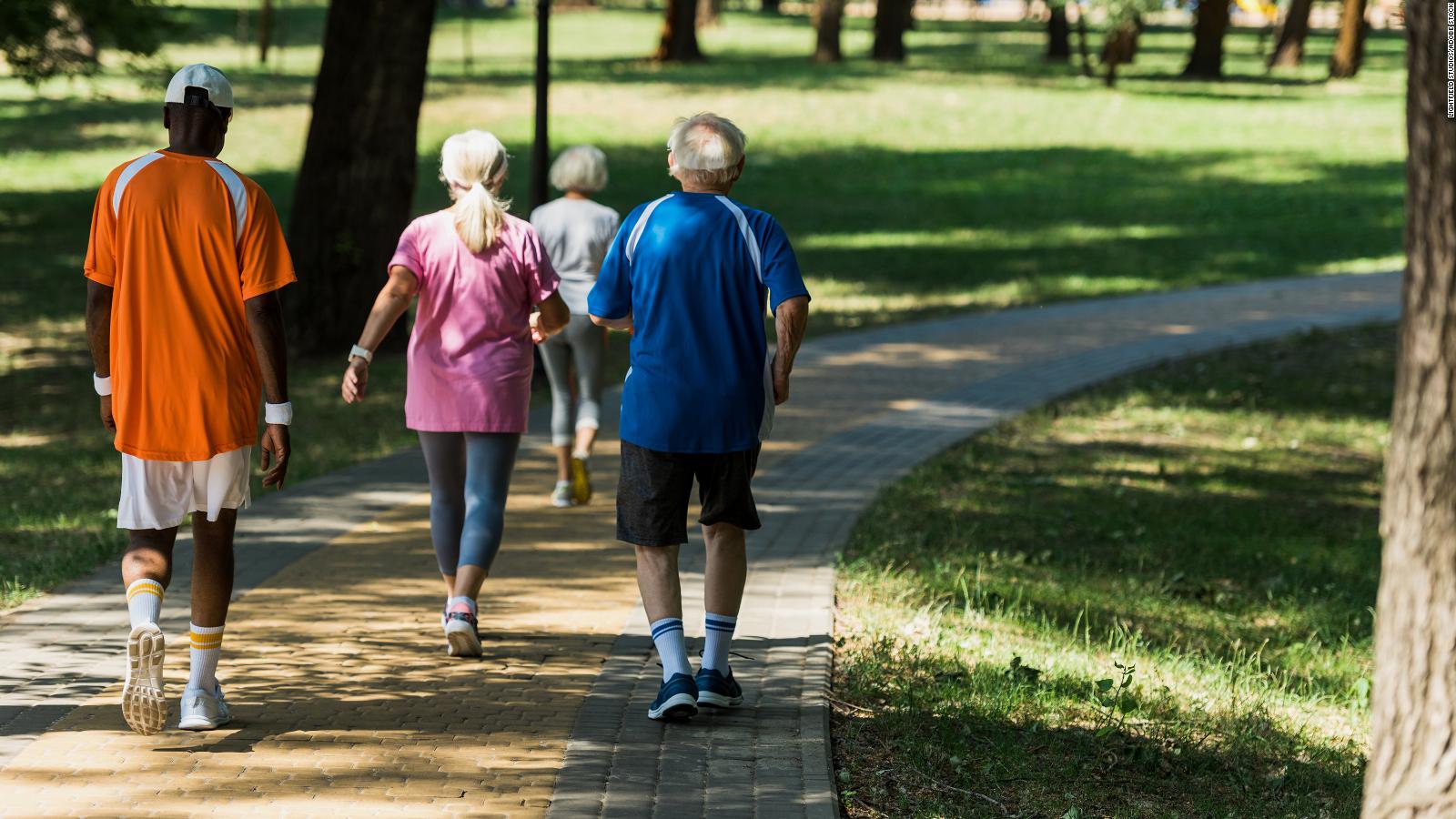Physical activity can prevent dementia, according to a study 0:45
(CNN) --
A slower walking pace as you age has always been a red flag for increased frailty that could lead to falls and other disabilities, experts say.
New research in small groups of older adults has also found that a decrease in walking speed from year to year may be an early sign of cognitive decline.
This may be caused by shrinkage of the right hippocampus, the part of the brain associated with memory, according to studies.
But not all signs of cognitive decline herald later dementia: Only 10% to 20% of people 65 and older with mild cognitive impairment (or MCI) develop dementia the following year, according to the National Institute on Aging .
"In many cases, MCI symptoms may stay the same or even improve," the institute stated.
Now, a new large-scale study, including nearly 17,000 adults over the age of 65, reveals that people who walk 5% slower each year and who also show signs of slow mental processes are more likely to develop dementia.
The research was published Tuesday in the academic journal
JAMA Network Open
.
"These results highlight the importance of walking in dementia risk assessment," wrote study author Taya Collyer, a researcher at Monash University's Peninsula Clinical School in Victoria, Australia.
The biggest risk
The new study followed a group of Americans over 65 and Australians over 70 for seven years.
Every two years, the research participants were required to take tests that measured overall cognitive decline, memory, processing speed and verbal fluency.
advertising
Twice every couple of years, the participants were also required to walk 3 meters.
The two results were averaged to determine the person's typical walking speed.
At the end of the study, the researchers found that the greatest risk of dementia was in those with a "double decline," meaning people who walked the slowest and also showed some signs of cognitive decline, explained Dr. Joe Verghese , a professor of geriatrics and neurology at Albert Einstein College of Medicine in the Bronx, N.Y., who was not involved in the study.
Walking's 'sister' activity may burn more calories
"Furthermore, those with a two-fold decline had a higher risk of dementia than those with only cognitive or walking rate decline," Verghese wrote in an accompanying editorial published Tuesday in
JAMA
.
A 2020 meta-analysis of nearly 9,000 American adults found that the two-fold association between walking speed and memory decline predicts later dementia.
However, despite these findings, "walking dysfunction has not been considered an early clinical feature in patients with Alzheimer's disease," Verghese wrote.
Sleeping less than 6 hours a night in middle age increases the risk of dementia by 30%, according to a study
exercise can help
There are things we can do as we age to reverse the brain shrinkage that comes with age.
Studies have found that aerobic exercise increases the size of the hippocampus, increasing some aspects of memory.
The hippocampus, located deep in the brain's temporal lobe, is an oddly shaped organ that is responsible for learning, memory consolidation, and spatial navigation, such as the ability to remember directions, locations, and orientations.
Physical activity can prevent dementia, according to a study 0:45
Aerobic exercise training increased the volume of the right anterior hippocampus by 2%, thereby reversing age-related loss in the organ within one to two years, in a 2011 randomized clinical trial. By comparison, people who only did stretching exercises had an approximate decrease of about 1.43% in the same period.
Aerobic exercise means with "air," and it's a type of training where your heart rate and breathing increase, but not so much that you can't continue to function.
Types of aerobic exercise can include brisk walking, swimming, running, cycling, dancing, and kickboxing, as well as all the cardio machines at your local gym, like the treadmill, elliptical, rower, or the climber
Dementia













